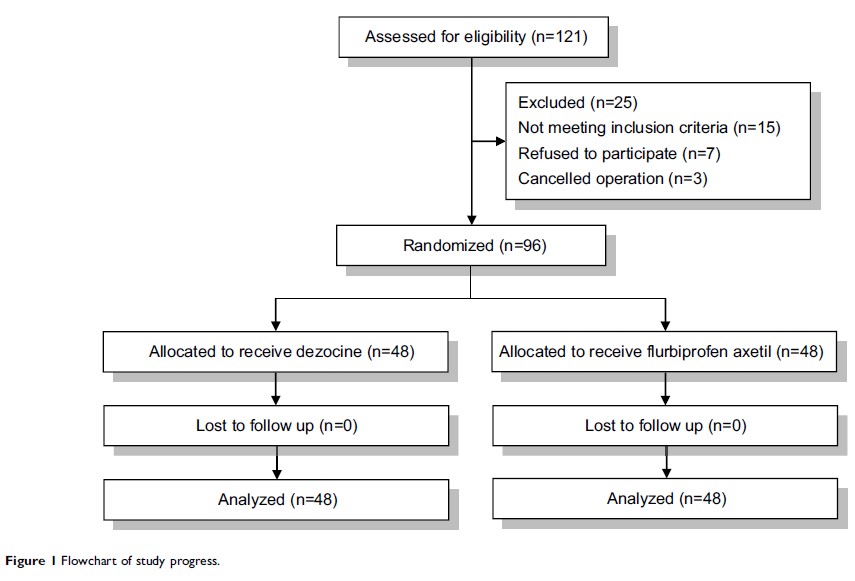9 1 2 3 6
论文已发表
注册即可获取德孚的最新动态
IF 收录期刊
- 2.6 Breast Cancer (Dove Med Press)
- 3.9 Clin Epidemiol
- 3.3 Cancer Manag Res
- 3.9 Infect Drug Resist
- 3.6 Clin Interv Aging
- 4.8 Drug Des Dev Ther
- 2.8 Int J Chronic Obstr
- 8.0 Int J Nanomed
- 2.3 Int J Women's Health
- 3.2 Neuropsych Dis Treat
- 4.0 OncoTargets Ther
- 2.2 Patient Prefer Adher
- 2.8 Ther Clin Risk Manag
- 2.7 J Pain Res
- 3.3 Diabet Metab Synd Ob
- 4.3 Psychol Res Behav Ma
- 3.4 Nat Sci Sleep
- 1.9 Pharmgenomics Pers Med
- 3.5 Risk Manag Healthc Policy
- 4.5 J Inflamm Res
- 2.3 Int J Gen Med
- 4.1 J Hepatocell Carcinoma
- 3.2 J Asthma Allergy
- 2.3 Clin Cosmet Investig Dermatol
- 3.3 J Multidiscip Healthc

地佐辛预防术后导管相关膀胱不适的效果:一项前瞻性随机试验
Authors Zhang GF, Guo J, Qiu LL, Li SM, Zheng M, Xia JY, Yang JJ
Received 29 December 2018
Accepted for publication 5 March 2019
Published 23 April 2019 Volume 2019:13 Pages 1281—1288
DOI https://doi.org/10.2147/DDDT.S199897
Checked for plagiarism Yes
Review by Single-blind
Peer reviewers approved by Dr Melinda Thomas
Peer reviewer comments 2
Editor who approved publication: Professor Manfred Ogris
Purpose: To
evaluate the effects of dezocine on the prevention of postoperative
catheter-related bladder discomfort (CRBD).
Patients and methods: Ninety-six
adult patients undergoing abdominal surgery with urinary catheterization under
general anesthesia were randomized into dezocine and control (flurbiprofen)
groups. The postoperative CRBD, pain score, sedation score and adverse effects
were evaluated at 0, 1, 2 and 6 hrs after tracheal extubation.
Results: The
primary outcome showed a lower incidence of CRBD at 1 hr post-extubation
in the dezocine group (29.17%) than the control group (58.33%, P <0.01). The
incidences at 0 and 2 hrs post-extubation and the overall incidence were
also lower in the dezocine group than the control group (all P <0.05). The
severity of CRBD at 0, 1, 2 and 6 hrs and the pain, sedation score and
other adverse effects were comparable between the two groups (P >0.05);
however, the overall severity of CRBD was decreased in the dezocine group
compared with the control group (P <0.05).
Conclusion: Intraoperative
dezocine reduces the incidence and severity of postoperative CRBD without
clinically relevant adverse effects.
Keywords: dezocine,
catheter-related bladder discomfort, general anesthesia, postoperation
